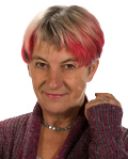Memory
Who Am I Without My Memories?
If you couldn't even recall your own name, would you still be the same person?
Posted July 14, 2014
How would you feel if you lost all your memories–if you couldn’t even recall your own name, where you came from, or how old you were? Would you still be the same person? This was the unfortunate state of a man found last week, wandering in a park in Peterborough in England. He speaks English with an East European accent but could tell doctors nothing about himself. He had completely lost his episodic memory, that is the memory of his life’s events. With no hint of his real name, they called him "Robert".
So who is "Robert"? This strange case raises many fascinating questions about self, memory and consciousness. Indeed, what is a self?
Are we, as so many people all over the world believe, an immutable, God-given soul; some kind of spiritual entity that has consciousness and free will and can survive the death of the physical body into which it was propelled at birth? If you believe this then Robert must still be the same soul but be isolated from his own memories. This theory makes no sense in scientific terms. It requires an undetectable soul to connect to its brain, instruct the actions of its body, and be affected by everything that happens in that brain–including whatever it was that denied Robert his memory. There would have to be some kind of magic link between the soul and its brain–a link for which there is no evidence.
Is a self made up out of memories? This is a tricky one. I can’t help feeling that without my memories I would not be me. I think I am–or was–the little girl who loved playing with Meccano and was scared of the Daleks. I am–or was–the teenager who behaved so unkindly to my poor parents. I am–or was–the author of lots of articles and books. I am–or was–a young mother who brought up two little children. But if I could not remember any of these events would I still feel like me?
A comforting way of thinking about this is that episodic memory is not all there is to self. For a start there are many other kinds of memory that can be retained when memory for past events is lost. Even the most profoundly amnesic patients can usually walk, eat, dress, speak and even write. These skills are learned but depend on different brain structures from those supporting such memories as the last time I went to London or that wonderful day on the beach last summer. ‘Robert’ can speak English and understands some Russian and Lithuanian. All this provides some aspects of who he is.
Then there is personality. Oddly enough, being extravert or introvert, having a wicked sense of humour, being chatty and friendly or anxiously reserved, may survive the loss of episodic memory. On Friday’s BBC Newsnight, I spoke to Jo who had a serious epileptic seizure when she was twenty and from then on could remember nothing of the first twenty years of her life. Her mother told her what she was like as a child, and her best friend what she got up to as a teenager. Interestingly, they said that she behaved in much the same way before and after her seizure. Her personality survived the catastrophic damage.
Jo also told me that life was getting easier now she is in her forties. At 21, the loss of 20 years of memory was devastating, but now it matters much less. As she said, lots of her friends cannot now remember much about their childhoods either. So she is not so alone.
Less comforting are some deeper questions about self. Why does a brain that orchestrates learning, memory, speech, perception, actions and emotions need a self as well? Where in a physical brain could it be and what could it do? Neuroscience seems to be pushing us ever closer to seeing the self as a construction, a story the brain tells itself to simplify how it understands its own body and actions. We speak about "me" and so come to believe that "I" am a separate entity from my body. But this is fiction.
I would go further and say that the "me" that seems so persistent and important is really a series of ephemeral, transient constructions. Most of the time we get on with life without thinking about self. Then every so often we reflect that "I" am planning this trip, that "I" like that beautiful sunset or that "I" am hungry. Then, and only then, is a self created. It is a real self in one sense–a model created by the brain that has real effects on that brain. In another sense it is an illusion. It is not what it seems to be.
The illusion arises because every time we think about "me" we assume it’s the same me as the one that got up this morning, the same one as that little girl who liked playing with Meccano. But it’s not. It may be similar. It may rely on memories from the past. It may have persisting personality traits. But each time it is a new and slightly different self–a temporary, fleeting self who wrongly thinks it is continuous. This is the complete opposite of a soul theory. It is, I believe, what Zen is getting at when it speaks of seeing through the illusion of self.
Robert is surely like the rest of us in having the sense of being a continuing self who is walking around and talking to people. He has not lost everything that makes up who he is. But I do hope he gets his memories back.


